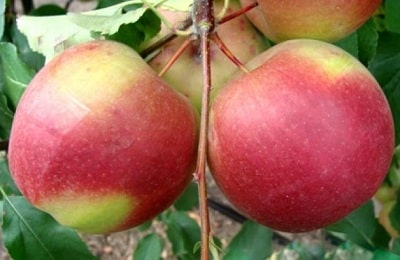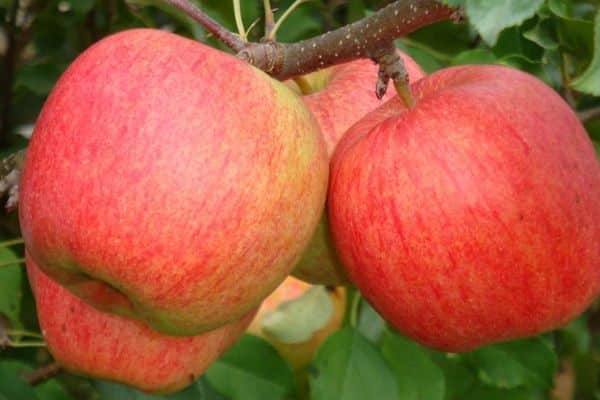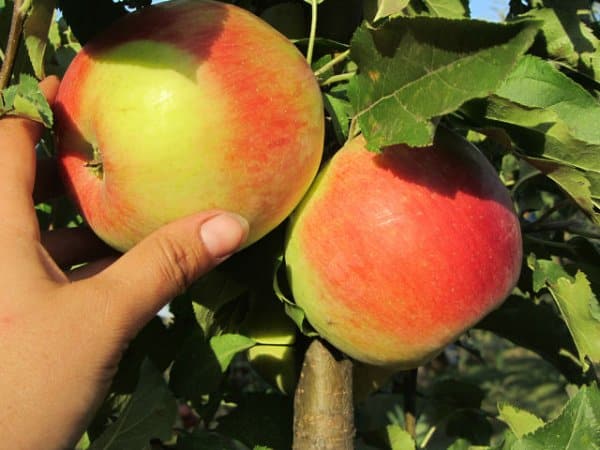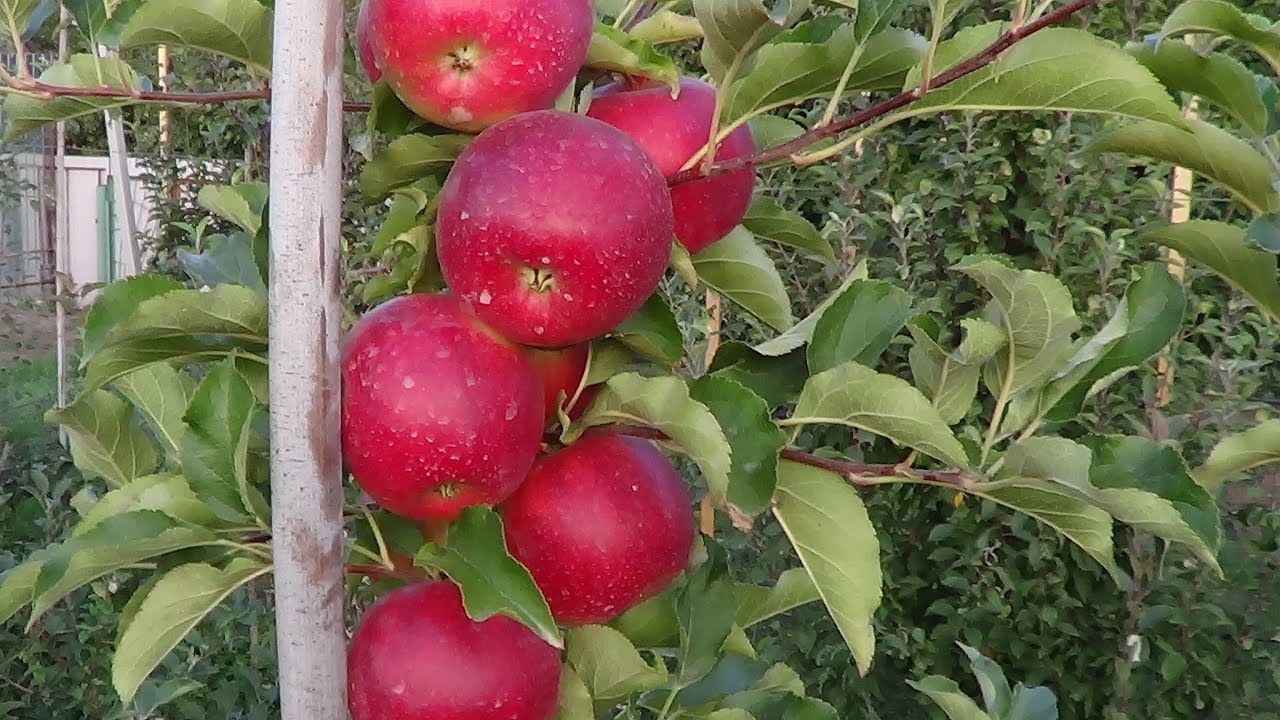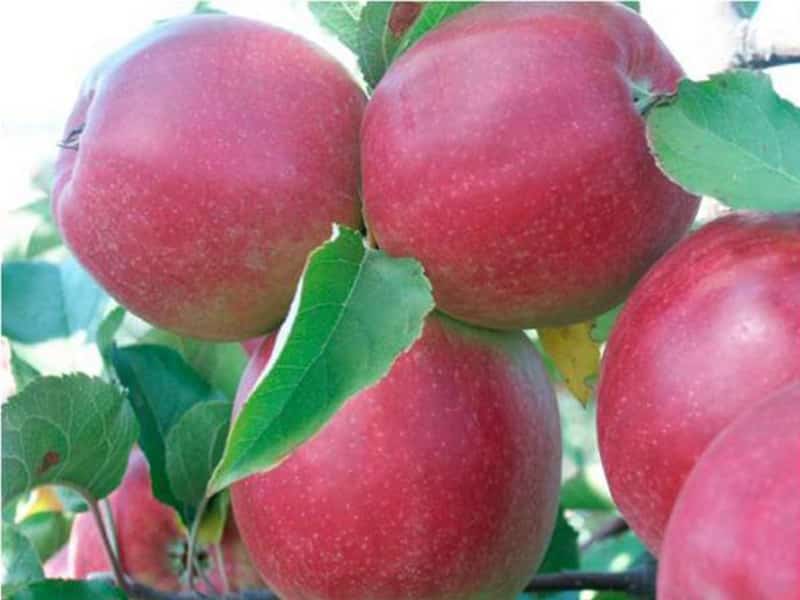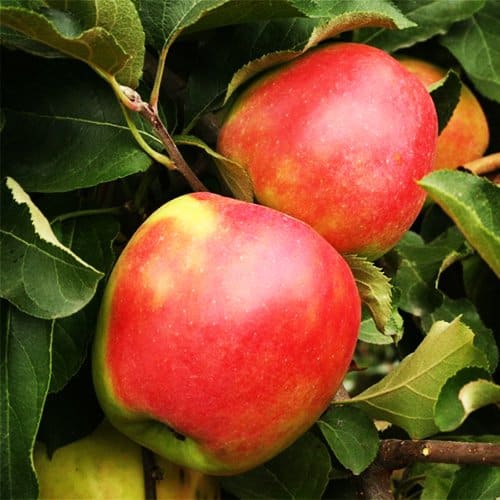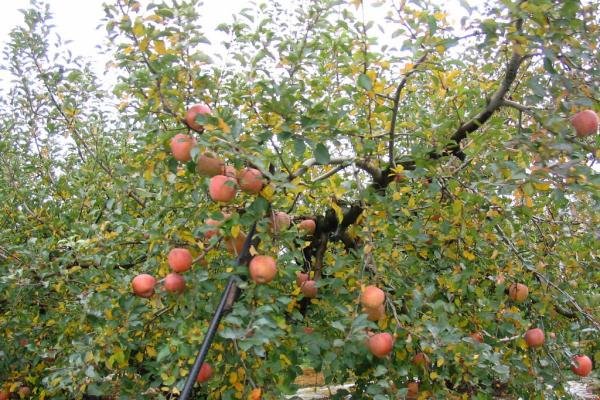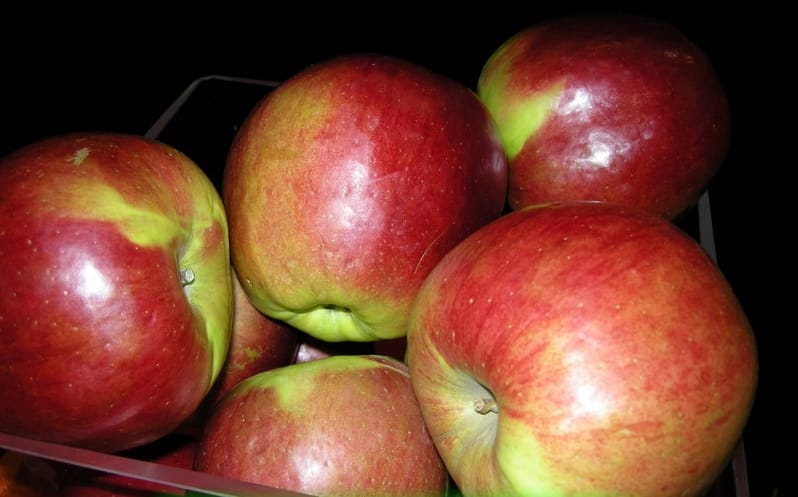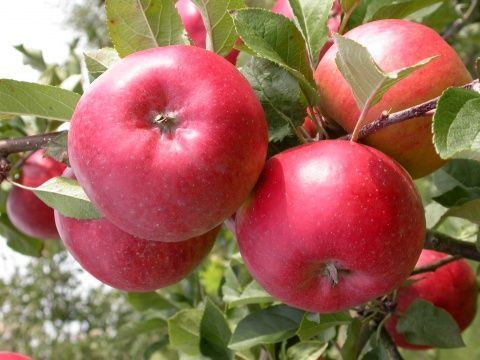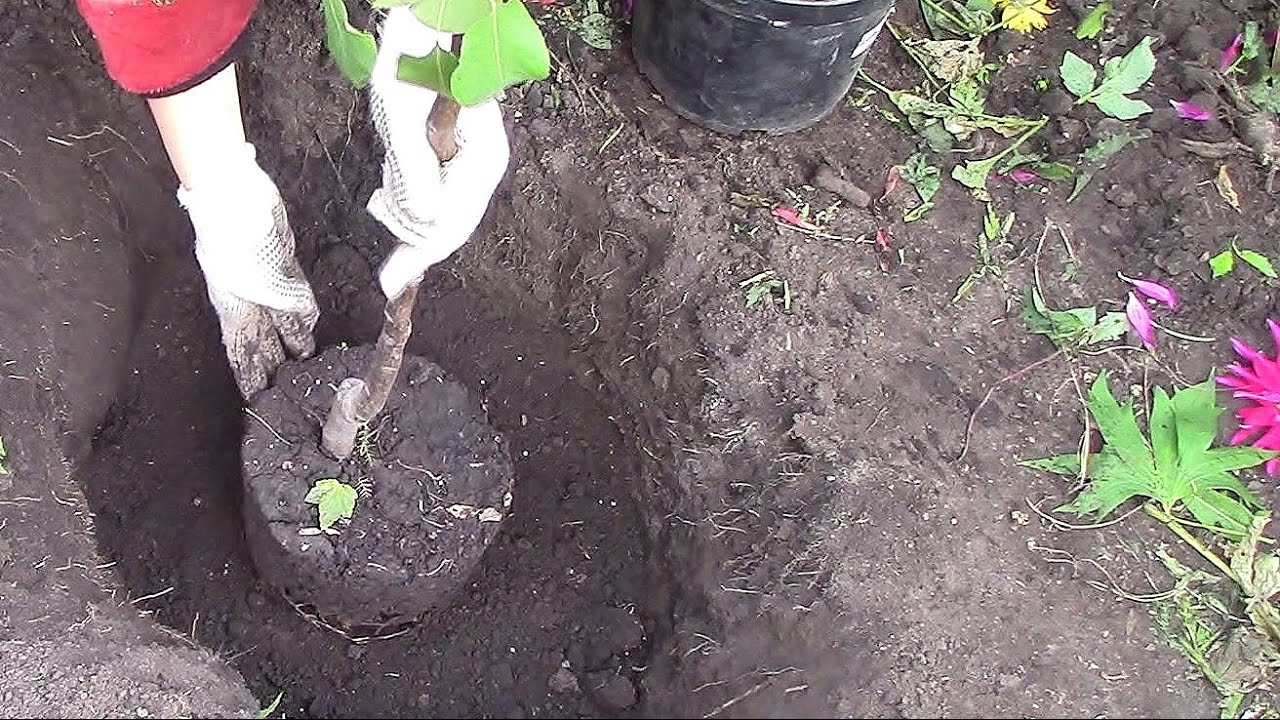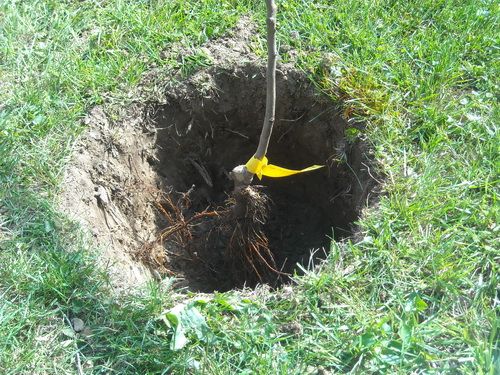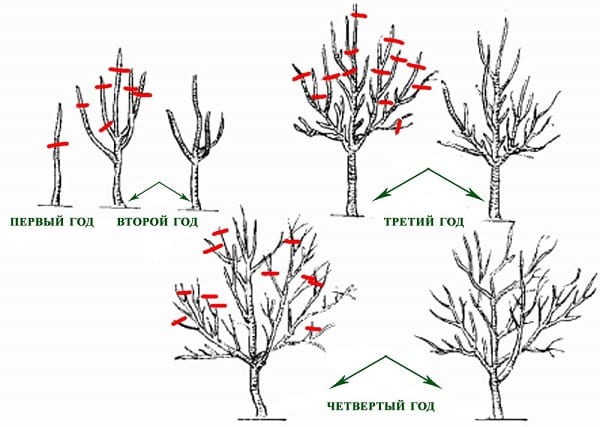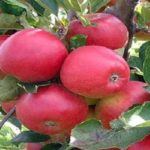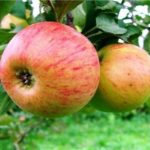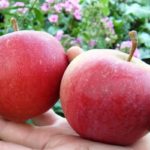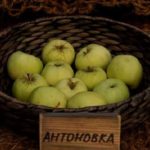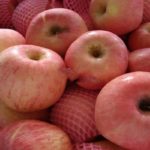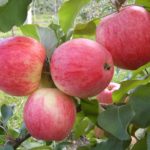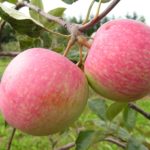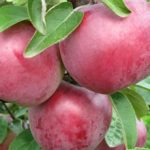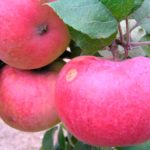Every summer resident strives to get the best for his plot. The same is true when choosing a variety of fruit trees. Ligol apple trees have some advantages due to which gardeners choose them. The species is resistant to disease, frost and drought, and also produces delicious apples.
- Brief history of variety selection
- Advantages and disadvantages of the type
- External description
- Tree height
- Crown diameter
- Annual growth
- Root system
- Appearance and taste of apples
- Favorable regions for cultivation
- Characteristics of the variety
- Winter hardiness
- Immunity to scab and other diseases
- Lifespan of a tree
- Nuances of ripening and fruiting
- Pollinator varieties
- Beginning of fruiting
- Maturation
- Apple collection and storage
- Use of fruits
- How to plant and grow a fruit tree
- Landing
- Preparation of seedlings
- Deadlines
- Required soil composition
- Optimal place
- Hole layout and dimensions
- How to water and fertilize
- Crown trimming
- Prevention of diseases and pests
- Preparing the apple tree for winter
Brief history of variety selection
The species has been known since 1972. The apple tree was created in the city of Skierniewice in Poland. This variety appeared thanks to the parent species:
- Golden Delicious;
- Linda.
From them, Ligol acquired many positive properties.
Advantages and disadvantages of the type
The apple tree has characteristics that have made it remain popular all these years.
Pros:
- frost resistance;
- high productivity;
- unpretentiousness;
- high commercial quality of fruits;
- long shelf life;
- ability to endure transportation over long distances;
- high immunity.
Minuses:
- if storage rules are violated, apples become bitter;
- constant formation of the crown and removal of growth is required;
- poor resistance to bacterial burn;
- Harvest frequency may be disrupted.
Every plant has negative and positive qualities. Some summer residents do not take into account the disadvantages, since they are insignificant.
External description
This information will help the summer resident choose the right place for growing. Studying the external characteristics of the plant will help prevent mistakes when growing.
Tree height
Ligol grows intensively in the first 10 years, then its growth slows down. The tree grows up to 4.5 m.
Crown diameter
If the crown is not formed, then its diameter reaches 3 m. But summer residents prefer to prune, this leads to increased productivity.
Annual growth
The peculiarity of the Ligol apple tree is that its shoots grow strongly.It must be pruned, otherwise the tree will slow down in growth and development. Annual growth is from 0.35 to 1 m.
Root system
Tree roots are sensitive to excess moisture. When they are oversaturated with liquid, they begin to rot and the tree dies. Particular attention should be paid to choosing a place for planting; ground ones should lie at a depth of 3-4 m. The root system is powerful, formed by main roots and many lateral ones.
Appearance and taste of apples
The fruits of the apple tree are aligned; thanks to this feature, they are grown for sale. The apples are large, the maximum weight is 400 g, the average weight is 250 g. The shade of the fruit is yellow-green, but most of it is occupied by a red blush. The taste is excellent, the taster rating is 4.6 points on a 5-point scale. The taste is mainly sweet, but there is also acidity; the apples are juicy with dense flesh.
Favorable regions for cultivation
The variety acclimatized for Poland feels good in Ukraine. Since the climate is closer to Polish. But besides this, Ligol is successfully grown in Belarus and the southern regions of Russia.
Characteristics of the variety
In addition to external data, a summer resident needs to know about other qualities of wood. Based on these data, he makes the final decision on planting the variety.
Winter hardiness
According to manufacturers, the species is able to withstand temperatures down to -17 ⁰C. But if you graft it onto a vigorous rootstock, it can withstand -30 ⁰C.
In regions with cold winters, it is recommended to hill up the apple tree before the onset of cold weather. For the winter, trees are wrapped, paying attention to insulating the root system.
Immunity to scab and other diseases
Ligol's resistance to scab and powdery mildew is high. But fire blight requires constant treatment.Infected areas are cut out and burned.
If a tree is severely affected by the disease, it is uprooted to avoid spreading the disease to other plants.
Lifespan of a tree
Most apple trees are long-lived; they grow for 100 years. But ordinary trees bear fruit for 20-40 years. And those grafted onto a dwarf rootstock give a harvest of 20-25 years.
The tree was bred only 40 years ago, but producers suggest that its lifespan is not much different from other apple trees.
Nuances of ripening and fruiting
Knowing the intricacies of apple ripening, a summer resident can influence the yield. By following all agricultural techniques, you get a rich harvest of tasty fruits.
Pollinator varieties
Ligol is self-sterile, so to increase the number of apples it is necessary to grow other apple trees nearby. They should bloom at the same time as this variety.
Best pollinators:
- Mac;
- Lobo;
- Champion;
- Spartan;
- Fuji and other varieties.
Planting several species at the same time allows you to harvest a bountiful harvest.
Beginning of fruiting
Already in the 3rd year the apple tree bears its first fruits. But the first few years the yield from one tree is only 3-4 kg. Gradually the volume of fruit increases.
Maturation
The fruits are harvested in mid-September - early October. The fruits become ready for consumption after a few months. At this time they will reach final maturity.
Apple collection and storage
Apples are stored in special, well-ventilated areas. When collected, they are placed in wooden boxes and lined with paper. Ligol apples store well in the refrigerator.
Use of fruits
Apples are often used for fresh consumption. But housewives find use in winter preparations and cooking.
How to plant and grow a fruit tree
Proper planting technique will help avoid problems in the future. Following the recommendations of experienced gardeners will make it possible to grow a healthy, strong tree.
Landing
The planting process consists of several stages, their implementation will lead to a positive result.
Preparation of seedlings
Prepare planting material in advance. If the seedling will be stored all winter, its roots are dipped in a mixture of mullein and clay, lowered into the basement or buried in the area. The plant should be strong, without visible damage.
Deadlines
Planted in spring, this is the best time to plant a fruit tree. The summer resident chooses the day independently, taking into account the climate of the region of residence. Seedlings are planted before sap flow begins.
Required soil composition
Fertile soil is the most favorable option for the growth of a young fruit tree. It is advisable to select the following soil composition:
- loam;
- sandy loam;
- black soil
If necessary, humus, manure and mineral fertilizers are added to the ground before digging.
Optimal place
The planting area should be illuminated by the sun and protected from drafts and wind. Of particular importance is the occurrence of groundwater and swampiness of the soil. The Ligol apple tree does not tolerate excess moisture.
Hole layout and dimensions
The depth of the planting pit is 0.8 m, the width is up to 1 m. If necessary, a drainage layer is formed. Then they are covered with a mixture of earth with humus, river sand, peat and wood ash. A small mound is formed and a seedling is placed on it. Sprinkle with fertile soil so that the root collar remains on the surface of the earth.
How to water and fertilize
At first, the seedling needs a lot of water; it is watered 1-2 times a week. You can't fill it up.As they grow older, the amount of watering is reduced. Water adult plants in the spring, during flowering, fruiting and after harvesting.
Fertilizers are not applied for the first year. Afterwards, water with mullein infusion and complex mineral fertilizers.
Crown trimming
The formation of an apple tree is necessary, since Ligol is prone to thickening. Therefore, it is recommended to carry out formative pruning in spring and autumn. Sanitary pruning is carried out throughout the growing season. Dry, deformed and diseased branches are removed from the apple tree.
Prevention of diseases and pests
In spring and autumn, preventive treatments are carried out on fruit trees. They are sprayed with chemicals, observing safety precautions. Correct planting and timely implementation of agricultural techniques are considered preventive measures. In case of diseases during flowering and fruiting, they are treated with folk remedies.
Preparing the apple tree for winter
With relative winter hardiness, Ligol must be prepared for winter. The trunk is wrapped with insulation, the trunk circle is hilled and covered with mulch. The Ligol apple tree is perfect for those gardeners who grow apples for storage.

